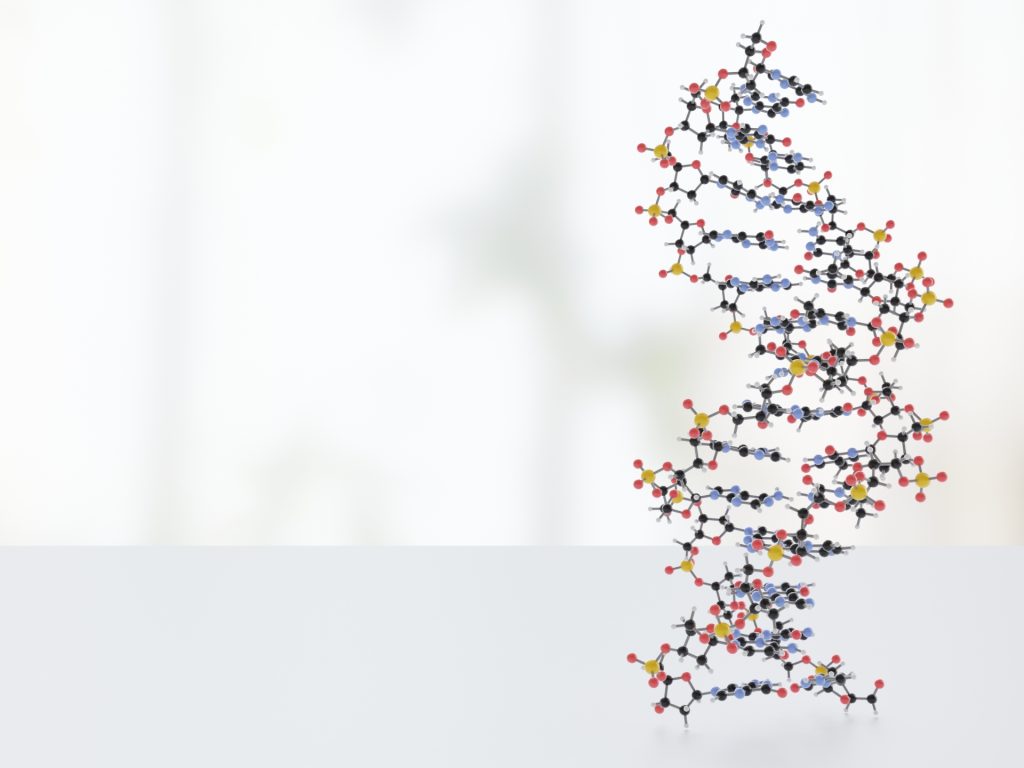
Introduction.
Advances in genetic analysis technology have made it possible for us to understand our own constitution and disease risk at the genetic level. This enables health planning optimized for the individual, contributing greatly to disease prevention and lifestyle improvement. This article details the latest trends in health management using genetic information, specific applications, and actual research results.
1. What is genetic information?
Genetic information is the blueprint of life recorded in DNA (deoxyribonucleic acid). Our bodies are composed of approximately 3 billion base pairs of DNA, which contain various genetic characteristics. By analyzing this information, the following matters can be learned.
- Body type (whether prone to obesity or muscle gain)
- Risk of disease (cancer, diabetes, cardiovascular disease, etc.)
- Efficacy of the drug (speed of drug metabolism and risk of side effects)
- Nutritional adaptability (ability to absorb certain vitamins and minerals)
Thus, genetic information plays a pivotal role in our health care.
2. Technology and Advances in Genetic Analysis
Genetic analysis technology has advanced significantly in recent years, and previously expensive analyses are now offered at relatively low cost. Major analysis technologies include the following
2.1. Next-Generation Sequencing (NGS)
NGS is a technology for fast and accurate analysis of the entire DNA sequence. This enables a comprehensive study of an individual’s genetic information.
2.2. DNA microarray
The technology screens for specific genetic mutations and is used to determine disease risk and the efficacy of drugs. Because of its low cost, it is widely used in consumer genetic testing services.
2.3. CRISPR technology
CRISPR, a genome editing technology, modifies specific genes and may be applied to gene therapy in the future.
3. Health planning using genetic information

Specific possible applications for health planning based on genetic information include
3.1. Personalized medicine
This approach uses genetic information to select the appropriate treatment for an individual. For example, targeted therapies for specific cancers are becoming increasingly important in personalized medicine because their effectiveness depends on the genetic mutation of the patient.
3.2. Nutrition and diet
By using genetic analysis to determine one’s metabolic type, one can develop a more effective diet plan. For example, if you are a slow metabolizer of carbohydrates, a low-carbohydrate diet may be appropriate for you.
3.3. Campaign plan
We know that genes determine muscle type and endurance orientation. This can be used to create more effective training menus.
3.4. Disease prevention
Once it is known that you are genetically predisposed to a particular disease, lifestyle changes can be made to minimize your risk. For example, if you are at high risk for cardiovascular disease, you can take steps to reduce salt intake.
4. Actual Research Results
There are numerous studies on health planning using genetic information. Below is a sampling of some of the most recent research findings.
- Genetic Testing and Personalized Treatment of Cancer
- Example research: The Cancer Genome Atlas (TCGA)
The TCGA project analyzes genetic mutations in various types of cancer to help optimize treatment.
- Example research: The Cancer Genome Atlas (TCGA)
- Relationship between genes and nutrition
- Example research: Nutrigenomics Research
In the field of nutrigenomics, the study of the interaction between nutrition and genes, certain genetic variants have been reported to affect vitamin D absorption.
- Example research: Nutrigenomics Research
- Genes and athletic performance
- Example research: ACTN3 gene and sports performance
Mutations in the ACTN3 gene have been shown to affect muscle strength and endurance in short-distance runners.
- Example research: ACTN3 gene and sports performance
5. Challenges and Ethical Issues of Genetic Information

Several challenges and ethical issues exist in the use of genetic information.
5.1. Privacy and Data Protection
Genetic information is extremely personal and data management and protection is critical. Strict rules are required to prevent unauthorized access or inappropriate use by third parties.
5.2. Genetic discrimination
People may be discriminated against in employment and insurance coverage on the basis of their genetic information. For this reason, “laws against genetic discrimination” are being enacted in many countries.
5.3. Ethical Issues in Gene Therapy
As gene editing using CRISPR technology continues to advance, the ethical debate is becoming more and more active. In particular, germline modification requires careful attention because of its trans-generational impact.
6. Specific examples of the use of genetic information
Health planning using genetic information is already beginning to be used in medical and fitness settings. Here are some specific examples.
6.1. Predicting Diabetes Risk and Improving Lifestyle
Diabetes is a disease that involves both genetics and lifestyle. People with certain genetic mutations are known to be at higher risk for diabetes, and early identification of risk can enable a preventive approach to be taken. For example, people who are genetically predisposed to insulin resistance can reduce their risk of developing the disease by adopting a carbohydrate-conscious diet and regular exercise.
6.2. Improved quality of sleep
Sleep quality has been shown to be influenced by genetic factors. For example, the PER3 gene is responsible for regulating the rhythm of the body’s internal clock, and mutations can easily determine whether you are a “morning person” or a “night person. By understanding your sleep tendencies through genetic testing, you can adjust your bedtime and light intake to ensure quality sleep.
6.3. Improved performance of athletes
Many athletes adopt more effective training methods by knowing their own genetic characteristics. For example, different variants of the ACTN3 gene produce different types of muscle fibers, indicating whether they are suited to “instantaneous” or “endurance” types. Someone suited to short-distance running or weightlifting will have different optimal training for a marathon or triathlon than someone suited to running a marathon or triathlon. This kind of information can help you maximize your performance.
7. Genetic Information and Mental Health

In recent years, genetic information has been attracting attention in the field of mental health. In particular, depression and anxiety disorders are known to be genetically influenced, opening up the possibility of personalized treatment.
7.1. Depression and the serotonin gene
The 5-HTTLPR gene is involved in serotonin transport, and its variants vary in stress tolerance. People with shorter variants of this gene tend to be more sensitive to stress and at higher risk for depression. This information can be used to provide preventive care by incorporating cognitive-behavioral therapy and stress management at an early stage.
7.2. Association between genes and sleep disorders
Sleep deprivation can seriously affect mental health. Some people are genetically less susceptible to short sleep durations, while others experience a significant decline in performance without adequate sleep. For example, people with a mutation in the DEC2 gene have been shown to get enough rest after a shorter than normal amount of sleep. This kind of genetic information can be used to create a sleep schedule that is optimal for you.
8. Future Health Care Using Genetic Information
Advances in genetic analysis technology are expected to enable even more personalized health management in the future.
8.1. Integration of AI and genetic information
Artificial intelligence (AI) will enable more accurate health planning by integrating vast amounts of genetic and lifestyle data; systems in which AI comprehensively analyzes past medical history, genetic information, dietary habits, and exercise habits to propose optimal lifestyles for individuals will become widespread.
8.2. Gene-based tailor-made medicine
In the future, the development of completely personalized drugs based on genetic information is expected to progress. Even today, molecular-targeted drugs are used in cancer treatment according to genetic mutations, but this will be further developed to cover all types of diseases.
8.3. Gene Editing and Health Promotion
With the development of CRISPR technology, the future of disease prevention at the genetic level is also in sight. Research is being conducted to try to prevent the onset of Alzheimer’s disease by modifying the genes of people who are genetically at high risk of developing the disease. However, because of the ethical issues involved, this research must proceed with caution, taking into consideration the balance between safety and social acceptance.
9. Social Implications and Challenges of Genetic Information

While the use of genetic information for health management has great benefits, there are also social challenges.
9.1. Risk of misuse of genetic information
Genetic information is highly personal data and is at risk of misuse if not properly managed. Privacy protection is especially important because insurance companies and employers may discriminate on the basis of genetic information.
9.2. Misconceptions of Genetic Testing
Genetic information is only an indication of “risk,” not a certainty of disease. However, there are cases where some people misunderstand the results of genetic testing and feel unnecessary anxiety. Education and guidelines are needed to promote correct understanding.
9.3. Widespread use and cost of genetic testing
Although the cost of genetic analysis has been declining, it remains expensive compared to general health screening. In order to make it available to more people in the future, the expansion of insurance coverage and price reductions are issues to be addressed.
10. Evolution of Personal Health Care Using Genetic Information
In recent years, personal health care (personalized health care) based on genetic information has developed rapidly. While conventional approaches to health management have been based on general health indicators, genetic information enables health care that is optimized for each individual’s constitution and risks.
10.1. Fusion of smart wearable devices and genetic information
Wearable devices such as smartwatches and fitness trackers record information such as heart rate, sleep data, and activity in real time for health management. Combining this with genetic information enables more precise health advice.
For example, if a person is genetically at high risk for diabetes, a wearable device can be used to monitor blood glucose fluctuations and the effects of exercise in real time so that diet and exercise can be adjusted appropriately. In addition, if genetic analysis reveals that a person is “prone to poor sleep quality,” a smartwatch can be used to monitor sleep quality and take remedial measures.
10.2. Personalized supplements using genetic information
Each person has a different capacity to absorb vitamins and minerals. Genetic analysis can help determine which nutrients are likely to be deficient and allow for individually optimized supplementation.
For example, a person with a gene for low vitamin D absorption tends to be deficient in vitamin D through general diet alone, making it easier to maintain good health by actively taking supplements. Similarly, people with low iron absorption can prevent anemia by utilizing appropriate supplements as well as diet.
10.3. Optimize food selection
Dietary management based on genetic information is also attracting attention. For example, people with the gene for lactose intolerance tend to have digestive problems when consuming dairy products. This information can be used to either avoid dairy products or combine them with supplements that break down lactose for a more comfortable diet.
The rate at which caffeine is metabolized is also genetically determined, so if you have a constitution that does not break down caffeine easily, coffee can keep you awake for long periods of time, which can lead to insomnia. This information can be used to adjust caffeine intake to ensure better sleep.
11. Fitness Strategies Incorporating Genetic Analysis

In the field of sports and fitness, genetic information can also be used to select training methods that suit individual constitutions.
11.1. Optimize training according to muscle type
There are two main types of muscles: fast (instantaneous) and slow (endurance), and the ACTN3 gene variant determines whether there is a greater percentage of fast muscle or slow muscle.
- Fast-twitch type (ACTN3 RR): Suitable for short-distance running and weight training
- Slow-muscle type (ACTN3 XX): Suitable for marathons and endurance sports
- Mixed type (ACTN3 RX type): balanced training is effective
This information will help you choose the training menu that is best suited for you and will enable you to improve your performance more effectively.
11.2. Risk Prediction and Prevention of Injury
Some genetic mutations have been shown to affect ligament flexibility and bone density. For example, people who are prone to ligament stiffness due to mutations in the COL5A1 gene can reduce their risk of injury by actively incorporating flexibility training.
In addition, people with mutations in the VDR gene, which is associated with bone density, tend to be more prone to fractures, so being aware of calcium and vitamin D intake can help maintain bone health.
12. Genetic information and health management by life stage
Genetic information can help you manage your health throughout your life. Let’s take a look at how it can be used for each life stage.
12.1. Childhood Health Care
Genetic influences play a major role in children’s growth and development. For example, if a child has a mutation in the GH1 gene, which is involved in height, it may produce different amounts of growth hormone and affect the rate of growth.
Some genes are also related to learning ability and memory, which can be helpful in selecting appropriate educational methods. For example, a child with genetically high language ability may be able to learn a language smoothly by incorporating multilingual education from an early age.
12.2. Adult Health Care
Adulthood is a time of increased risk for stress and lifestyle-related diseases. By utilizing genetic information, we can build ways to increase stress tolerance and lifestyle habits that prevent disease.
For example, people who are susceptible to stress can achieve mental stability by adopting mindfulness and meditation. In addition, people who are genetically predisposed to a high risk of atherosclerosis can reduce their risk of cardiovascular disease by controlling their lipid intake.
12.3. Health Care in Aging
In old age, the risk of dementia and osteoporosis increases. By utilizing genetic information, these risks can be identified early and appropriate measures can be taken.
For example, people with the APOE4 gene, which carries a high risk of Alzheimer’s disease, may be able to reduce their risk of developing the disease by actively engaging in brain-activating activities (reading, puzzles, socializing).
13. Future Medical and Health Industry Prospects Using Genetic Information

The development of genetic analysis technology is revolutionizing the medical and health industries. In the future, “completely tailor-made medicine” utilizing an individual’s genetic information will become the mainstream, and the accuracy of disease prevention, diagnosis, and treatment will be greatly improved.
13.1. Evolution of Gene Editing Technology and Gene Therapy
CRISPR-Cas9 is currently the most popular gene editing technology. This technology can precisely modify specific genes and is being applied to the treatment of hereditary diseases and disease prevention.
For example, the following genetic diseases are being treated
- Sickle Cell Disease (SCD): A treatment that uses CRISPR technology to restore abnormal red blood cells to normal is under investigation.
- Hereditary muscular dystrophy: therapies are being developed to stimulate the synthesis of defective proteins through gene editing.
- Hereditary Visual Impairment: Attempts are underway to restore vision through gene therapy.
In the future, when gene editing technology becomes safer and more reliable, it may be applied to the treatment of not only these genetic diseases, but also cancer and neurological diseases.
13.2. Development of drugs optimized for an individual’s genetic makeup
Although many medications are currently prescribed at a “one-size-fits-all” dosage, it is known that different genes produce different effects and side effects of medications. For example, the CYP2D6 gene affects the rate at which drugs are metabolized, and people with variants of this gene have a very different effect on how drugs work.
It is expected that the following “gene-customized medicines” will be applied in the future.
- Anticancer drugs: The most appropriate drug is selected based on the specific genetic mutation of the cancer cells.
- Antidepressants: Prescribe the most appropriate medication based on the individual’s ability to metabolize serotonin.
- Blood pressure-lowering medications: use lower doses for those who are genetically predisposed to a strong antihypertensive effect.
The more widespread the use of such “personalized medicine” (Precision Medicine), the less risk of unnecessary medication and side effects, and the more effective the treatment will be.
13.3. Spread of preventive medicine using genetic information
Currently, the mainstream of medical treatment is to “treat illness after it has occurred,” but by utilizing genetic information, it will be possible to “prevent illness before it occurs.
For example, mutations in the BRCA1 and BRCA2 genes are known to increase the risk of breast and ovarian cancer. Those who have identified their risk through genetic testing can take the following preventive measures
- Receive regular physical examinations and imaging studies (MRI, mammography).
- Consider prophylactic hormone therapy for those at high risk.
- Review diet and exercise to create habits that reduce cancer risk.
Thus, if preventive medicine using genetic information becomes widespread, it will be possible to significantly reduce the incidence of disease in the future.
14. Developing a new health business using genetic information

New health businesses are springing up one after another as genetic information is used to manage health.
14.1. Genetic-based personalized healthcare services
Many companies are now offering services that provide health advice based on an individual’s genetic data.
For example, when users take a genetic test, they can obtain the following information on a dedicated app or website
- Your constitution (whether you gain weight or muscle easily)
- Risk of disease (diabetes, cancer, heart disease, etc.)
- Genetically appropriate exercise and diet plan
- Lifestyle advice for preventive medicine
As these services become more widespread, it will become easier for individuals to use genetic information to help them in their daily lives.
14.2. Development of customized foods based on genetic information
The food industry is developing “personalized foods” that contain optimal nutrients based on an individual’s genetic information.
For example, special foods with low salt content are being developed for those who are genetically at high risk of high blood pressure, and lactose-free milk is being offered to those who are lactose intolerant.
In the future, health foods based on an individual’s genetic information may become readily available in supermarkets and convenience stores.
14.3. Fusion of Genetic Data and AI for Future Health Management
Through the use of artificial intelligence (AI), more advanced health prediction models are being built by integrating genetic and lifestyle data.
For example, AI can more accurately predict future disease risk by comprehensively analyzing data such as the following
- Genetic information (disease risk, constitution, metabolic characteristics)
- Lifestyle (diet, exercise habits, stress levels)
- Environmental factors (air pollution levels in the area of residence, climate)
The future will soon see AI assistants that use such data to provide optimal health care advice to individuals.
summary
Health planning based on genetic information enables individuals to understand their constitution and risk of disease, and to more effectively prevent, treat, and optimize their lifestyles. With the latest developments in genetic analysis technology and AI, personalized medicine, customized foods, and personal healthcare services are expanding. On the other hand, there are issues such as privacy protection and misunderstanding of genetic information, which require appropriate rules and understanding. In the future, further technological advancement will usher in an era in which more and more people will be able to utilize genetic information.


